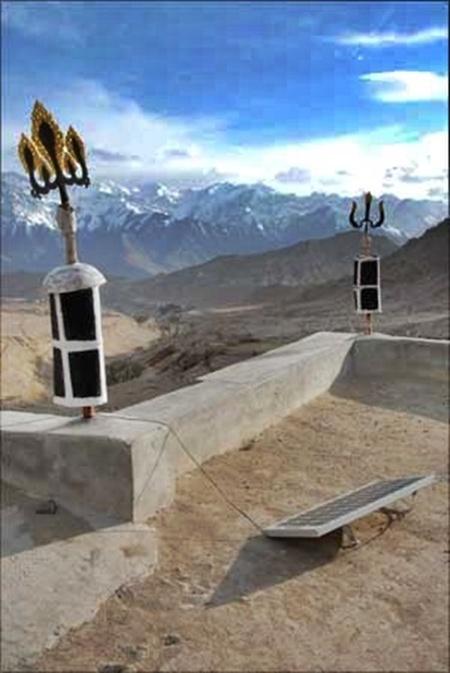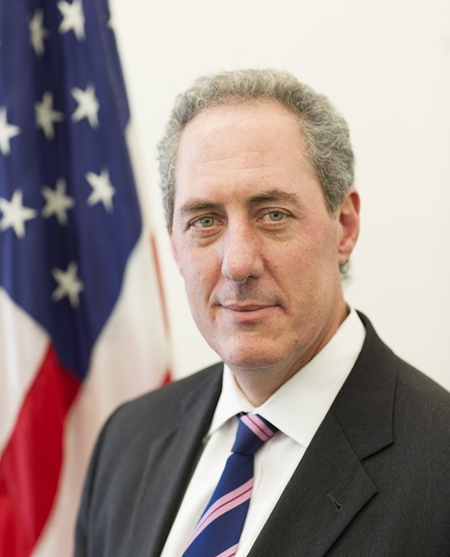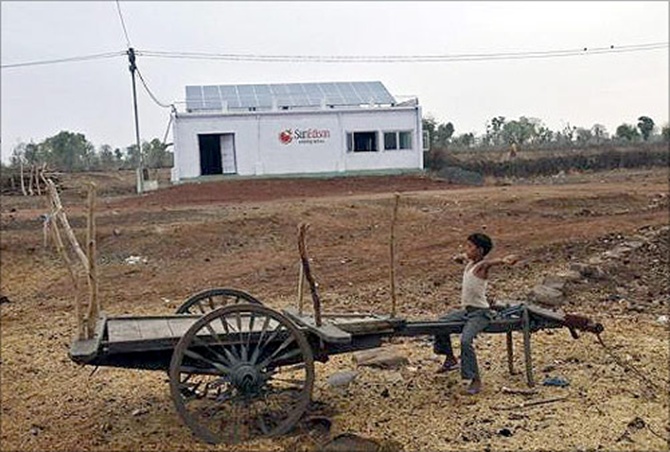 | « Back to article | Print this article |
Trade war: US warns India on discriminatory practice
The United States has protested against India’s move to discriminate against US exports by requiring solar power developers to use Indian-manufactured equipment instead of US solar products.
Even as the hangover and negative fall-out from the L’Affaire Khobragade that resulted in the worst diplomatic spat in recent years continues to simmer- or even fester - the US continued to turn the screws on India in the areas of trade and commerce - the latest being trade enforcement action by the US Trade Representative Michael Froman against India’s barriers to American solar product exports.
Announcing that the United States has requested World Trade Organization dispute settlement consultations with India concerning content requirements in Phase 11 of India’s National Solar Mission, Froman said these requirements discriminate against US solar cells and modules by requiring solar power developers participating in Phase 11 to use Indian-manufactured solar cells and modules instead of US or other imported equipment.
Compounding this discrimination, he said, India has now extended the domestic content requirements to more solar energy products than covered under Phase 1 of the NSM.
Addressing a packed news conference at the USTR headquarters, Froman at the outset declared, “President Obama’s consistent focus has been on fostering growth, creating jobs, and strengthening the middle class. And that’s been our focus here at USTR as well.”
“One of the ways we do that is by ensuring that American workers are not unfairly disadvantaged in the global marketplace – that there is a level playing field for American-made products and services overseas. To this end, the Obama Administration has expended tremendous efforts to enforce America’s trade rights - to bring home the full benefit of the rules and market access we have negotiated in our international trade agreements.”
Froman noted, on February 10, we notified our Indian counterparts in New Delhi, Geneva, and Washington that the United States is challenging the domestic content requirements for solar power equipment imposed by India in ‘Phase II’ of its National Solar Mission.
These domestic content requirements discriminate against US exports by requiring solar power developers to use Indian-manufactured equipment instead of U.S. equipment. This kind of discrimination is against WTO rules, and we are determined to stand up for US workers and businesses.
Click NEXT to read more...
Trade war: US warns India on discriminatory practice
He argued that “today’s action is also consistent with the Administration’s strong support for the rapid development of renewable energy around the world, including in India.
Domestic content requirements detract from successful cooperation on clean energy and actually impede India’s deployment of solar energy by raising its cost.”
Froman said the US action “follows our February 2013 challenge to domestic content requirements in ‘Phase I’ of India’s National Solar Mission.”
“We hope that through these cases and other bilateral contacts, we will be able to dissuade India from continuing to impose domestic content requirements,” he said.
Even while turning the screws on India, Froman recalled, “Let me just say that when President Obama went to India in 2010, he noted that the US-India relationship was one of a strategic partnership – and in fact, a defining partnership of the 21st century.”
“We have a strong and growing trade and investment relationship with India, and we both remain committed to seeing that it achieves its full potential,” he said, and added, “An important part of any maturing trade relationship is effectively addressing the range of issues on our trade and investment agenda, including in areas where we might disagree.”
Froman said, “Today’s action addresses a specific issue of concern and in no way detracts from the importance we attach to this relationship.”
But he made clear in issuing a warning to India, “As the world knows, the United States is resolute in making sure that any and all of our trading partners play by the rules, and enforcing our rights when they don’t.”
“Through this action – as with all of our enforcement actions – we are bringing to bear a whole-of-government commitment, through USTR and the InteragencyTradeEnforcementCenter, to stand up for our trade rights. We know that when we do, our workers and businesses can compete and win in the global economy.”
Click NEXT to read more...
Trade war: US warns India on discriminatory practice
Froman then made available a battery of USTR officials - all of them attorneys - to brief on background and defend his enforcement action, which they said was aimed to protect the jobs of more than 10,000 American workers and noted that India’s was the second largest market - after Japan - for the export of its solar products.
Asked about the timing of this action, particularly since India in the past several weeks had been getting hammered by some US action or another, one official said, “As you know when the US government requests consultations with a trading partner about a measure, we have done all of our work to assess whether the measure was consistent or not and it takes that period of time and sometimes it happens to coincide with other things that maybe going on in the bilateral relationship - sometimes it doesn’t.”
“These cases stand on their own merit, each one relates to particular trade matters or a set of measures we consider to be a problem, and that is the case here,” he said.
Asked what happens now, since India is unlikely to change its policies, the official warned then "the US retains its options," but did not elaborate.
“It’s up to India to decide how to address its policies," he said, "(but) we hope that by demonstrating our concern and our resolve for the American jobs - more than 10,000 American jobs that are at stake - in the solar industry sector and our concerns to stand up for American business and American workers when provisions we consider to be inconsistent with WTO rules are at stake - by demonstrating that resolve - we are hopeful that India will modify its provisions and that we can resolve this dispute without having to go to other stages in the dispute settlement mechanism.”
When pressed if this had the makings of a US-India trade war, the official said, ‘No,’ and argued, “In a mature trading relationship as we have with India, there are going to be issues that arise and what this administration is committed to do is to raise them directly and frankly.”
Click NEXT to read more...
Trade war: US warns India on discriminatory practice
“This is a normal part of a mature and significant trading relationship we have with India,” he added.
Asked about the size of the Indian market, the official said, “It’s sometimes difficult to put an exact estimate on the amount of the market,” but noted, “In the case of India, our exports before this and other measures came into play in 2011, were more than a $100 million - $119 million to be precise - and have fallen off precipitously since then.”
“But what’s more important is the size of the India market and India’s National Solar Program is committed to increase 20-fold over the coming decade. So, it’s a very important market –it’s the second largest export market for American solar producers,” he said.
More India-bashing was on the cards later in the week, as the US International Trade Commission has scheduled hearings titled Trade, Investment, and Industrial Policies in India: Effects on the US Economy, to take a critical look at India’s trade and investment policies.
And called on to testify are some of the lobbies that have been most harsh on India and castigated Delhi for its policies like the US Chamber of Commerce, International Intellectual Property Alliance, American Insurance Association, National Association of Manufacturers, Pharmaceutical Research and Manufacturers of America.
These lobbies a few months ago, convinced more than 175 US lawmakers to sign on to a letter to President Obama pillorying India for a host of regulations and IPR violations and urging him to take strong action against these trade indiscretions by Delhi.
In fact, the US Chamber of Commerce, of which the US-India Business Council is an appendage, have urged the USTR to designate India as a ‘priority foreign country,’ that would entail punitive trade sanctions since it’s a label that is “given to the worst offenders when it comes to protecting intellectual property.”
The USTR in its latest Foreign Trade Barriers report continued to place India on its ‘Priority Watch List,’ and said India had made “limited progress in improving its weak IPR legal framework and enforcement system.”
The USTR report bemoaned in the section on India, “In many areas, however, IPR protection and enforcement challenges are growing, and there are serious questions regarding the future condition of the innovation climate in India across multiple sectors and disciplines.”
It said, it “continues to urge India to reconsider how it can meet legitimate domestic policy objectives by fostering rather than undermining that innovation climate.”



